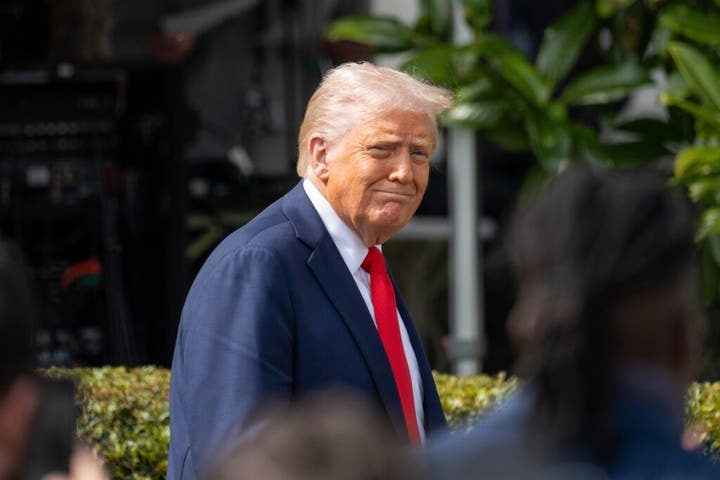Former President Donald Trump has ignited a fresh political firestorm, publicly calling for an investigation into former House Speaker Nancy Pelosi’s stock trading activities. During a recent White House briefing, Trump directly accused Pelosi of leveraging “inside information” to amass significant wealth through the stock market, reigniting a long-standing debate about congressional ethics and financial transparency.
Trump’s pointed remarks centered on his assertion that “Nancy Pelosi became rich by having inside information.” He emphasized that she and her husband, Paul Pelosi, had “made a fortune,” labeling the alleged conduct as “disgraceful” and demanding a thorough inquiry into their financial dealings and portfolio performance.
These accusations come amidst a growing bipartisan push for legislation aimed at curbing stock trading by elected officials. Trump expressed conceptual support for Senator Josh Hawley’s proposed HONEST Act, a bill designed to prohibit members of Congress, the President, and the Vice President from trading individual stocks while in office. This legislation, previously known as the PELOSI Act, underscores the public and political scrutiny surrounding politicians’ investments.
Pelosi’s investment portfolio has indeed been under intense scrutiny for its exceptional performance. Reports indicate the Pelosi family’s combined net worth has seen substantial increases, with their portfolio reportedly gaining significant percentages in recent years, outperforming numerous hedge funds and market benchmarks, further fueling suspicions of insider trading.
Much of the criticism has focused on the well-timed trades executed by Paul Pelosi, a venture capitalist. Notable examples cited include the sale of major tech stocks prior to significant antitrust investigations by federal agencies, and other large transactions occurring months before critical government announcements, raising questions about potential conflicts of interest and access to privileged information.
Despite the persistent attacks and allegations, Nancy Pelosi has consistently defended her actions and expressed support for legislative measures to enhance government transparency. She stated her willingness to back such legislation “no matter what they decide to name it,” indicating a commitment to restoring public trust in government officials’ financial integrity.
The broader context reflects a bipartisan effort to address mounting concerns about congressional trading advantages. Several lawmakers across the political spectrum have faced criticism for achieving unusually high returns on their investments, prompting calls for stricter ethical standards and greater accountability from those in power.
The debate surrounding these allegations and proposed legislation highlights the increasing public demand for transparency from elected officials regarding their personal financial dealings. It underscores a fundamental question of whether those entrusted with public service should be permitted to trade in individual stocks, given their access to sensitive information that could influence market outcomes.






Leave a Reply